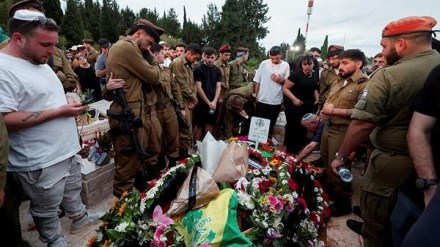As the global community remains embroiled in conflicts like the Russia-Ukraine war and the ongoing tensions between Iran and Israel, a new development has raised eyebrows. The Russian Ambassador to the U.S., Anatoly Ivanovich Antonov, recently returned to Moscow after completing nearly seven years in Washington D.C. His return has sparked concerns due to the unusual nature of his departure, where Antonov reportedly took all embassy belongings, including sensitive documents, cryptographic gear, and communication equipment. This has drawn comparisons to Japan’s actions in 1941, just before the attack on Pearl Harbor, fueling speculation about the potential for significant events unfolding in the near future.
Rising Tensions Between Iran and Israel
Adding to the already fragile geopolitical landscape, Iran closed its airspace to civil flights on Sunday evening, signaling growing fears of imminent conflict. The decision came on the heels of Iran launching a significant missile attack on Israel on October 1, deploying 200 ballistic and hypersonic missiles. Israeli Prime Minister Benjamin Netanyahu responded with a stern vow to retaliate, intensifying fears of an all-out confrontation between the two nations.
Iran’s close ties with Russia are well known, and its decision to cut off its airspace comes amid escalating hostilities. This week also marks the one-year anniversary of the Israel-Hamas war, which began on October 7, 2023. On that day, the Hamas militant group launched a devastating attack on southern Israel, killing approximately 1,400 people and taking 200 Israeli citizens hostage. In retaliation, Israel launched a military campaign against Hamas, and over the course of the year, more than 40,000 lives have been lost, with over 100,000 people injured.
Ongoing Conflicts Across the Middle East
While Israel’s war against Hamas in Gaza continues, it has also expanded its military operations beyond its borders. Israeli forces have engaged in clashes with Hezbollah, the Iran-backed militant group operating in Lebanon, inflicting significant damage on its infrastructure. Israel is also actively engaged in combating Houthi rebels in Yemen, further widening the scope of its military involvement in the region.
Reports have also emerged suggesting that Israel may have targeted Russian military bases in Syria during recent strikes on Houthi rebel positions. While these claims remain unconfirmed, the implications of such an action would dramatically raise the stakes in the ongoing regional conflict.
Iran’s Role in the Region’s Instability
Iran’s support for groups like Hamas, Hezbollah, and the Houthi rebels has long been a source of tension in the Middle East. As Israel continues its campaign, Mossad, Israel’s intelligence agency, has reportedly carried out covert operations targeting Iran’s military commanders and Hezbollah forces. One notable strike allegedly resulted in the deaths of 3,000 Hezbollah militants, including its leader, Hassan Nasrallah, in a precision airstrike.
In retaliation, Iran launched its October 1 missile attack on Israel, further worsening tensions between the two nations. As these conflicts evolve, the international community remains on edge, with the potential for escalation growing each day.
